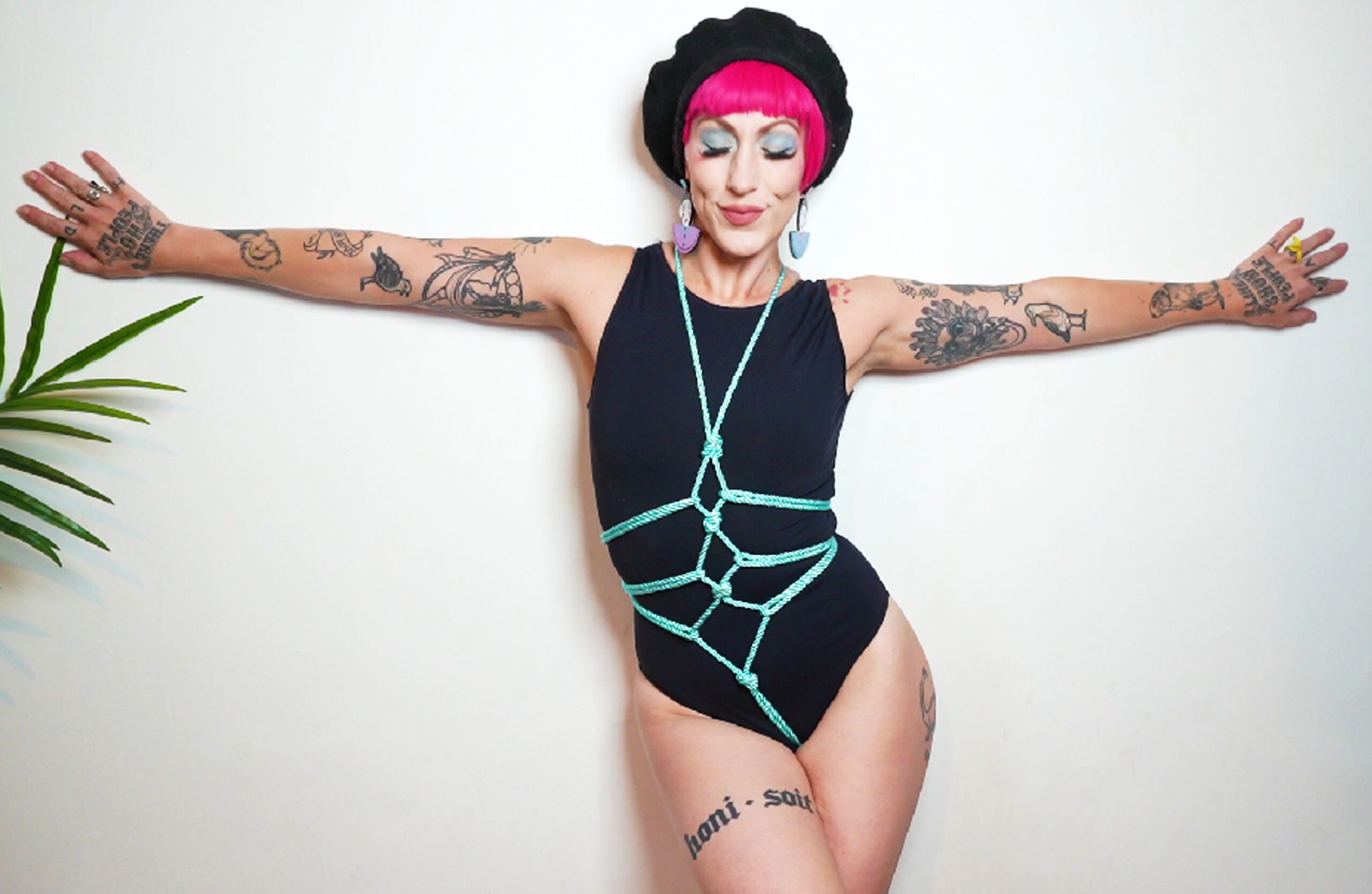Understanding Demigender Identity
Demigender describes a gender identity that partially aligns with one’s assigned sex at birth, but not fully.
Imagine gender as a spectrum, rather than a simple binary of male and female. Demigender individuals exist somewhere along this spectrum, feeling a partial connection to one gender while also experiencing a disconnect from it.
There are different ways to experience demigender identity:

-
Some people might identify as demi-boy, meaning they partially identify as male but not fully.
-
Others may identify as demi-girl, partially identifying as female but not completely.
-
There are also those who identify as demigender nonbinary, experiencing a partial connection to both male and female genders.
It’s important to remember that demigender is not the same as transgender. While both identities involve a gender experience that differs from one’s assigned sex at birth, demigender individuals may still identify partly with their assigned sex.
Understanding how demigender identity affects love can be insightful. Like anyone else, demigender individuals seek love and connection based on their own unique experiences and desires. However, navigating relationships can sometimes present unique challenges:
-
Communication is key: Openly discussing one’s gender identity and how it influences their emotional needs and boundaries with partners is crucial for building a strong and understanding relationship.
-
Acceptance and Validation: It’s essential for partners to accept and validate each other’s gender identities, respecting their individual experiences and feelings.
-
Challenge Preconceived Notions: Society often has rigid expectations around gender roles in relationships. Demigender individuals may need to challenge these norms and create spaces where they feel comfortable expressing their true selves.
Ultimately, love knows no boundaries when it comes to gender identity. With open communication, acceptance, and a willingness to understand, demigender individuals can build fulfilling and loving relationships just like anyone else.
Demigender is a gender identity that falls outside the traditional binary of male and female.
Individuals who identify as demigender experience a partial connection to one gender while having a lesser or no connection to another.
The intensity and specific nature of this connection can vary greatly from person to person.
For example, someone might feel partially female but not fully, while another might identify as primarily male with a small degree of connection to femininity.
Understanding demigender identity requires moving beyond the limitations of the binary and recognizing that gender is a spectrum.

It’s about acknowledging that gender can be fluid, multifaceted, and unique to each individual.
Here’s how demigender identity can affect love:
-
Dating preferences can vary based on the individual’s demigender experience.
-
Some demigenders may feel drawn to partners who share their gender identity or those who identify outside of the binary.
-
Others may be open to dating anyone regardless of their gender identity.
-
It’s important for demigender individuals to find partners who respect and understand their identity.
Communication is key in any relationship, but it’s especially important for demigenders to openly discuss their needs and feelings with their partners.
This can help create a safe and supportive environment where both individuals feel comfortable being themselves.
Remember, love is about connection and acceptance. Demigender identity is simply one aspect of a person’s unique identity, and it should be respected as such.
The Ripple Effect on Romantic Relationships
Embracing authenticity in romantic relationships begins with understanding oneself, including one’s gender identity.
Demigender individuals experience a sense of partial or incomplete connection to a specific gender. This can manifest in various ways, with some demigenders identifying as partially male, female, nonbinary, or even a mix of genders.
This fluidity and complexity in gender identity can significantly impact romantic relationships, demanding open communication, understanding, and acceptance from both partners.

**Authenticity**, at its core, means being true to oneself without pretense or fear of judgment. For demigender individuals, this involves openly sharing their unique gender experience with their partner(s).
This open communication can create a space of **empathy** and understanding, allowing the partner to learn and grow alongside the demigender individual.
The ripple effect of embracing authenticity begins within the relationship itself. When individuals feel safe and accepted for who they truly are, it fosters emotional intimacy, trust, and vulnerability.
This foundation of acceptance can then extend beyond the immediate couple, influencing their interactions with friends, family, and society at large.
Conversely, suppressing or hiding one’s demigender identity can lead to internal conflict and emotional distance within a relationship. It can also create a sense of isolation and loneliness, impacting the overall well-being of both partners.
Navigating romantic relationships as a demigender individual requires conscious effort from both parties. It demands patience, willingness to learn, and a commitment to creating a space where both partners feel seen, heard, and valued.
The rewards, however, can be profound. sadist dom Embracing authenticity fosters deeper connections, strengthens communication, and allows love to flourish in its truest form.
Demigender individuals identify partially with one gender, but not fully. Their gender identity exists on a spectrum, falling somewhere between their assigned sex at birth and another gender.
This fluidity in gender identity can significantly influence romantic relationships, requiring open communication, understanding, and flexibility from both partners.
Here’s how demigender identity might affect love:
-
Understanding Identity: The first step is education and empathy. Partners need to understand the nuances of demigender identity. It’s not a phase, but a fundamental aspect of who the individual is.
-
Language and Pronouns: Using correct pronouns and respecting name preferences are crucial. Demigender individuals may use they/them pronouns, he/him, she/her, or a combination depending on their personal experience.
-
Navigating Expectations: Traditional gender roles and expectations may not always align with a demigender person’s identity. Openly discussing and negotiating these expectations can help build a relationship that respects both individuals’ needs and boundaries.
-
Emotional Expression: Gender identity is intertwined with emotions. A partner should create a safe space where the demigender individual feels comfortable expressing their feelings without judgment.
-
Support and Acceptance: Being a supportive partner means accepting the demigender identity fully. This includes celebrating milestones, offering emotional support during challenging times, and standing up against prejudice or discrimination.
Ultimately, love thrives on understanding, respect, and communication. By approaching relationships with an open mind and a willingness to learn, couples can navigate the complexities of demigender identity together, building a foundation of trust and intimacy.
Love, Laughter, and Living True
Love, laughter, and living true are cornerstones of a fulfilling life, regardless of gender identity. For those who identify as demigender, these aspects may hold particular significance in their journey of self-discovery and connection.
Demigender individuals experience a partial connection to one or more genders, often feeling a stronger alignment with a single gender while also recognizing elements of another. This fluidity can shape how they navigate love, leading them to seek partners who understand and respect their unique experience.
Finding community and support is vital for demigender individuals, as it provides a safe space to share experiences, challenges, and triumphs. Connecting with others who understand the nuances of demigender identity can foster a sense of belonging and validation.
Here are some ways love, laughter, and living true can manifest in the lives of demigender individuals:
-
Embracing authenticity: Demigender people may find joy in expressing their gender identity in ways that feel genuine to them, whether through clothing, pronouns, or social interactions. This authenticity can attract partners who appreciate their individuality.
-
Building open communication: Honest and transparent conversations about gender identity can be crucial in demigender relationships. Discussing boundaries, preferences, and needs can foster intimacy and understanding.
-
Celebrating shared values: Finding partners who align with their core values, such as inclusivity, acceptance, and respect for diversity, can create a strong foundation for love and companionship.
Laughter serves as a powerful antidote to stress and hardship, providing joy and lightness even amidst challenges. Demigender individuals, like everyone else, benefit from the uplifting power of shared laughter, whether it comes from inside jokes, silly moments, or witty banter with loved ones.
Living true means honoring one’s authentic self, regardless of societal expectations or pressures. For demigender individuals, this can involve advocating for their rights, challenging gender norms, and creating spaces where they feel comfortable and accepted. Living true allows them to shine brightly and inspire others.
Ultimately, love, laughter, and living true are fundamental to a happy and fulfilling life for all, including demigender individuals. By embracing their unique identity, building supportive relationships, and staying true to themselves, they can navigate the world with confidence, joy, and compassion.
Demigender refers to a gender identity that partially identifies with one gender, while partially not identifying with any gender, or partially identifying with another gender. It’s a spectrum, meaning there are many variations within this identity. Someone who identifies as demigirl might feel mostly female but not entirely, while someone who identifies as demiboy might feel mostly male but not fully.
Understanding how demigenderness affects love requires recognizing that it’s deeply personal and unique to each individual. Some demigender individuals might experience love in ways similar to those who identify with a singular gender. Others might find their love experiences shaped by their fluid or partially defined gender identity.
Here are some ways demigenderness *could* influence love:
• **Navigating Pronouns and Gender Expression:** Clear communication about preferred pronouns and comfortable gender expressions is crucial for any relationship. A demigender individual might use they/them pronouns or a combination of pronouns, and it’s important for their partner(s) to respect and use those pronouns consistently.
• **Exploring Gender Identity Together:** Love can be a space for self-discovery and growth. If one partner is demigender, the relationship could provide an opportunity to explore gender identity together with understanding and support.
• **Challenging Traditional Gender Roles:** Demigender identities often challenge conventional notions of masculinity and femininity. This can lead to more fluid and egalitarian relationships where partners are free to express themselves authentically.
• **Building Empathy and Acceptance:** Relationships with demigender individuals can foster greater empathy and acceptance of diversity in general. Learning about and understanding someone’s unique gender journey can broaden perspectives and create a stronger bond of respect and love.
Remember, every demigender individual is different, just like everyone else. How they experience love will be shaped by their personality, values, and the dynamics of their specific relationships. The most important thing is to approach love with open-mindedness, communication, and a willingness to learn and grow together.
Dive into every detail
Read everything written here
- Gummy Smile Treatment – Gum Contouring Near Dormansland, Surrey - July 25, 2025
- Forehead Frown Lines Treatment Near Mitcham, Surrey - July 22, 2025
- Exosome Therapy For Skin Rejuvenation Near Tatsfield, Surrey - July 16, 2025

